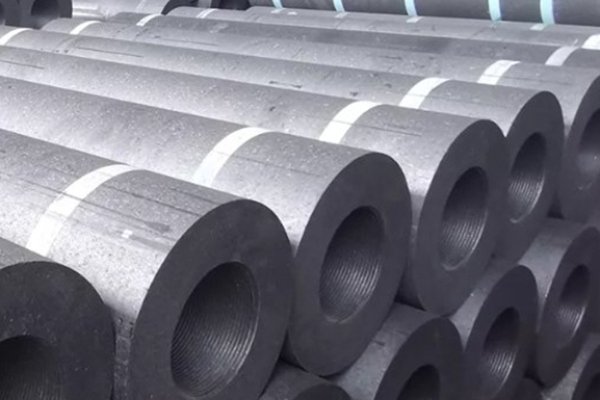Electrolysis is a widely used process that involves using an electric current to induce a chemical reaction, typically breaking down compounds into their components. One of the essential tools in electrolysis is the electrode, which acts as the site where these reactions occur. Among various electrode materials, graphite electrodes have gained popularity for their unique properties, including high conductivity, resistance to high temperatures, and chemical stability. This article explores the viability of using a graphite electrode for electrolysis, examining the benefits, limitations, and specific applications.
1. What is a Graphite Electrode?
Graphite electrodes are made primarily from carbon, with their unique structure providing high electrical conductivity and thermal resistance. Graphite’s layered structure allows electrons to move freely, making it an excellent conductor of electricity, a critical feature for any electrolysis process. Due to these qualities, graphite is often used as an electrode material in various industrial applications, including steelmaking and battery production.
When used in electrolysis, a graphite electrode helps facilitate the flow of electric current through the electrolyte (the conducting solution), enabling the desired chemical reactions to occur. The durability and low cost of graphite compared to other electrode materials make it an attractive choice for electrolysis applications.

2. Why Use Graphite Electrodes for Electrolysis?
Several factors make a graphite electrode suitable for electrolysis:
- High Conductivity: Graphite is a good conductor of electricity, essential for efficient electrolysis. The higher the conductivity of the electrode, the more effective and efficient the electrolysis process will be.
- Chemical Stability: Graphite is chemically inert in many solutions, which makes it resistant to corrosion in various electrolytic environments. This is especially beneficial in electrolysis involving acidic or alkaline solutions.
- Thermal Resistance: Electrolysis can generate heat due to the current passing through the electrolyte, and graphite’s ability to withstand high temperatures without degrading is a significant advantage.
- Affordability and Availability: Compared to noble metals like platinum, graphite is both less expensive and more readily available, making it an economical choice for large-scale or long-term electrolysis applications.
These characteristics make graphite electrodes well-suited for many types of electrolysis processes, from educational experiments to industrial-scale applications.
3. Applications of Graphite Electrodes in Electrolysis
Graphite electrodes are commonly used in various electrolysis applications, including:
- Water Electrolysis: Graphite electrodes can be used in the electrolysis of water to produce hydrogen and oxygen gases. This process splits water molecules into hydrogen and oxygen ions, which then migrate to the electrodes to form gas. Graphite’s stability in water and other benign solutions makes it a good option for small-scale water electrolysis.
- Chlor-Alkali Process: In industrial settings, graphite electrodes are often used in the chlor-alkali process, which involves the electrolysis of saltwater (sodium chloride solution) to produce chlorine gas, hydrogen gas, and sodium hydroxide. Graphite’s resistance to the chlorine gas formed in this process is advantageous, as it doesn’t readily corrode or degrade.
- Metal Plating and Electrorefining: In the electroplating and refining industries, graphite electrodes are used for the deposition of metals on substrates or the purification of metals. For instance, in copper electrorefining, a graphite electrode acts as an inert cathode, where copper ions are reduced and deposited.
4. Limitations of Using Graphite Electrodes in Electrolysis
While graphite electrodes offer numerous advantages, they also come with certain limitations that may affect their performance and lifespan in electrolysis processes:
- Erosion and Wear: Over time, graphite electrodes can degrade, especially in highly reactive electrolytes or under prolonged use. This degradation occurs as the graphite layers slowly disintegrate, leading to reduced conductivity and effectiveness.
- Oxidation in Strongly Oxidizing Environments: Graphite is generally stable in neutral and mildly acidic or alkaline solutions. However, in strongly oxidizing conditions or at high voltages, graphite can oxidize, reducing its effectiveness and lifespan. This can be particularly problematic in applications like water splitting where oxygen gas is produced, as oxygen is an oxidizing agent.
- Limited Current Density: Graphite cannot support very high current densities as effectively as some other materials. At high current densities, graphite electrodes can overheat, leading to faster degradation and reduced efficiency in electrolysis.
These limitations mean that while graphite is suitable for many electrolysis applications, certain industrial processes requiring very high currents or involving highly reactive substances may need alternative electrode materials.
5. Alternatives to Graphite Electrodes
In applications where graphite may not be ideal due to its limitations, alternative materials like platinum, titanium, or nickel may be used. These materials generally offer higher stability in harsh electrolytic environments and support higher current densities. However, they are typically more expensive than graphite, making graphite a more cost-effective choice for many applications where its performance is adequate.
Conclusion: Graphite Electrodes are a Viable Choice for Electrolysis
Using a graphite electrode for electrolysis is viable and advantageous for various applications, thanks to its high conductivity, chemical stability, and affordability. Whether it’s for basic water electrolysis, industrial chlor-alkali processes, or electroplating, graphite electrodes provide a cost-effective solution that balances performance with economic considerations. Despite some limitations, especially in high-intensity or highly reactive environments, graphite remains a versatile and accessible option.
Overall, the decision to use graphite electrodes in electrolysis depends on the specific needs of the process. For many types of electrolysis, graphite provides an ideal balance between cost and effectiveness, making it a popular choice across both academic and industrial settings.
Post time: 11-11-2024


